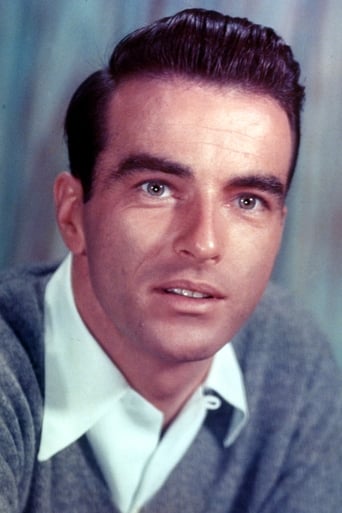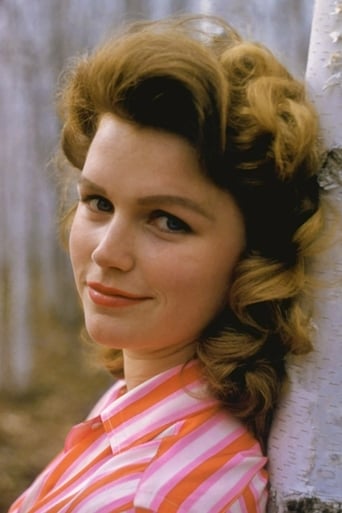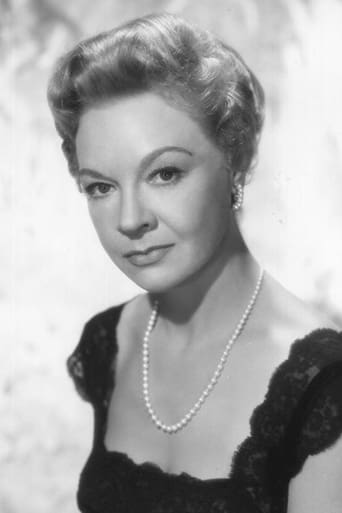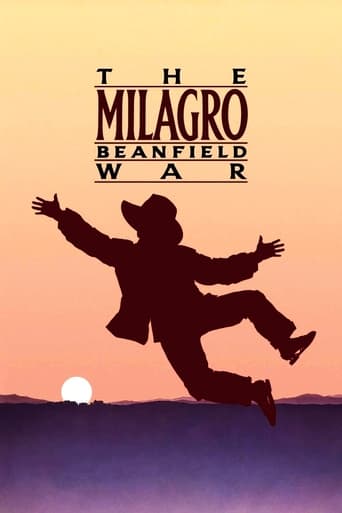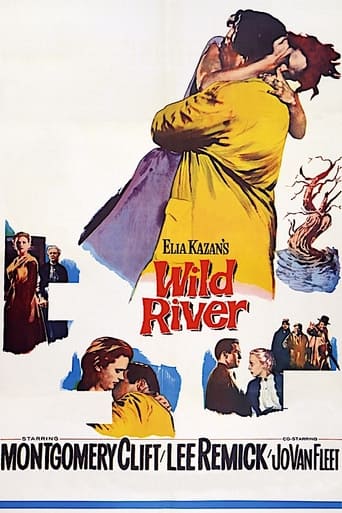
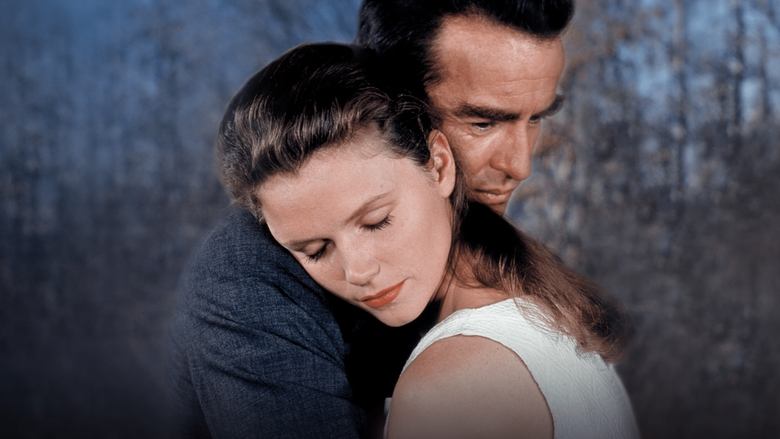
Wild River (1960)
A young bureaucrat for the Tennessee Valley Authority goes to rural Tennessee to oversee the building of a dam. He encounters opposition from the local people, in particular a farmer who objects to his employment (with pay) of local black laborers. Much of the plot revolves around the eviction of a stubborn octogenarian from her home on an island in the river, and the young man's love affair with that woman's widowed granddaughter.
Watch Trailer
Cast
Similar titles
Reviews
Waste of time
As somebody who had not heard any of this before, it became a curious phenomenon to sit and watch a film and slowly have the realities begin to click into place.
The film may be flawed, but its message is not.
Great movie. Not sure what people expected but I found it highly entertaining.
"Wild River" was released in 1960. I would have been 13 then and this movie is still strong in my now 67-year old mind. It was filled with tragedy and heartbreak, the destruction of past and future and hope. Shortly after the old woman left the island, her homestead on it covered over with water, covering her past like it had never occurred, and because she died in the fancy new house the TVA had made for her shortly after she got there, it was like she'd never been - like it had all been mist and shadows. That's stuck in my mind for most of my life, with a lesson that nothing is forever. "To every thing there is a season, and a time to every purpose under the heaven..." Eccl 3:1(KJV) AMEN!!!
I can see why this movie is considered a classic. A particular version of rural Tennessee is captured very starkly with the characters and atmosphere seeming to walk right out of a painting. That much alone makes it worth a view. The acting is excellent, especially in the supporting and minor roles. They create and carry the film. Given that, Montgomery Cliff, although a great actor, is not as good as one might expect. The attempts at romantic moments with Lee Remick really fall flat and it seems to be his presence that is the problem not hers or the director's. She puts out a good effort but it is not believable when it is pointed in his direction. His other scenes are much better but even with those, this is not one of the great Montgomery Cliff vehicles. There is one confrontation scene that is a bit confused in that it is not exactly clear what the motivations of all the participants are and their actions are likewise difficult to make sense of. It almost came across as a scene that was artificially built up with extra characters that the director wanted to show but had no other logical place in which to do it. It could have been scaled back and been more effective.
The DVD case with this release carries a comment describing the film as a 'hidden gem'. How often has that promise been fulfilled for buyers? In this case, for me, it definitely was. I like most of Elia Kazan's films, and 'Wild River' is an excellent example of his work.Kazan gets fine performances out of the whole cast. He tells the story without flourishes or cinematic indulgences, pacing the action and character development with wonderful skill and feeling. (A fine musical score contributes to the mood.) The film starts out with newsreel footage of flooding along the Tennessee River in the 1930s. The use of historical material is a simple and effective way of setting up the situation: the attempt by a Tennessee Valley Authority bureaucrat to persuade a woman landholder to move off the island she owns in the river, the last property not yet repossessed for a dam project. But Kazan's film is not of the 'cinema realism' type. It is a study in character: the bureaucrat who comes to do a job in the public interest, the old woman who refuses to surrender her birthright, and her widowed granddaughter who craves to rejoin society. The story takes these three characters through a convincing and interesting journey. There are no plot surprises, and yet the outcome is never obvious. Jo Van Fleet, as the woman hold-out, gives a powerful portrayal of someone soured in her rightness. Montgomery Clift, as the bureaucrat, is as good here as in any of his films. The reserved quality of his acting style is put to good use, in character terms, by Kazan. Lee Remick, as the granddaughter, demonstrates the emotional range and subtlety of performance that mark her best work. She is also strikingly beautiful. This film is a treasure.
This is a magnificent film, one of Elia Kazan's finest. Apparently it was his personal favourite Unfortunately, its one weak point is in the casting of Montgomery Clift. Because of this, the film does not equal Kazan's other masterpieces ON THE WATERFRONT (1954), BABY DOLL (1956), or SPLENDOUR IN THE GRASS (1961) in all of which the casting was perfect, or America America (1963, also known as THE ANATOLIAN SMILE), in which the passion of the young male lead Stathis Giallelis swept all before him in a wave of overwhelming emotion. (I must be one of the few people left who knew Stathis, as he never managed to carve a subsequent career for himself, despite all that Harold Loeb at the Warner Brothers New York office, whom I knew well at that time, did to help him. I never knew why Harold dropped out of films in 1970, having produced SOLDIER BLUE with Cappy Bergen. He died in 2003.) This features what was probably the finest performance given by Lee Remick in her remarkable career, although she had to struggle against the unresponsive Clift, with whom there was no chemistry whatever because he was not only gay but a confirmed masochist (whereas the part called for someone rather different, to say the least). In this film, Clift shows the emotional responsiveness of a rotting log. But Remick is glorious, transcendent in her performance, and she simply acts her way around him, ignoring the fact that he is asleep on the job. The other incredible performance in this film is by the elderly actress Jo van Fleet, in one of her finest roles. Both she and Remick delivered Oscar-level performances, and the direction was of that quality as well. The script by Paul Osborn was excellent despite the challenge of being derived from two separate novels by two different writers. Osborn had worked with Kazan before, having written the screenplay for EAST OF EDEN (1955), another 'impossible task' of adaptation. This film is a testament to the pioneer spirit which made America great. It is typified by the old matriarch Jo van Fleet, who refuses to leave the family property on an island in the Tennessee River despite a compulsory purchase by the federal government who have constructed a dam in the 1930s through the much-hated TVA (Tennessee Valley Authority). I remember Tennesseans ranting and foaming at the mouth about the TVA throughout the 1950s and into the 1960s. It was one of Roosevelt's biggest political power plays, whereby he broke down the rights of the states in favour of creating a dominant federal government which could override any local obstacle at will. This massive centralization of power in Washington used as its pretext the taming of the Tennessee River in order to prevent disastrous floods. But the locals knew what it was really all about. As one character says in this film, 98% of the population of the Tennessee River Valley were without electricity at that time. This was really about creating a situation where power companies could sell them electricity generated by hydroelectric power on their own land which had been seized from them with inadequate compensation, and it was also about the huge sums earned by out-of-state construction companies for constructing the dams, and paid by tax money taken from, amongst others, the inhabitants of Tennessee. In other words, it was about money, corruption, and power, and not about floods at all. In that respect it resembled the Civil War, which was not at all about slavery, as the slavery issue was falsely used as a cloak by the North to cover its commercial motives. (The slaves were all bought and traded by Northerners, who are the ones who made all the money from the disgusting slave trade. Georgia and South Carolina banned the slave trade as early as the 1830s, a quarter of a century before the Civil War. But this is all covered up in the history books of today, in favour of distorted propaganda which suits contemporary political motives.) This film was deeply unpopular with a certain class of Northerners, but welcomed in Tennessee and neighbouring states as something which at least approached a sympathetic treatment of their plight. Lee Remick looks very much like one of those gals, of whom I have seen so many, who lived in the wilds of Appalachia. This is ironic, since she came from Massachusetts. But she has the right haunted look, lean face, and intensely sensuous quality. She does moderately well with her accent, though there are few people in the film who really 'speak Tennessee'. The film is made on location, and is highly authentic, with the Hiawasee River standing in for the Tennessee River as it was before the dams were built. Most of the filming was in Bradley County. Kazan was no purveyor of Hollywood fantasies, he was always after the true grit. He may well have been America's greatest film director of all time. The fact that he was so violently hated by the victims of McCarthy should not be allowed to detract from a proper evaluation of his genius and compassion. One of the finest aspects of this film is its warmly sympathetic portrayal of the blacks (called 'Negroes' at that time), and especially the character Sam played by Robert Earl Jones. The amusing and devoted friendship between Jones and Jo van Fleet is portrayed with wonderful finesse and subtlety. Ellsworth Fredericks provides beautiful and lyrical cinematography, as he had earlier done for FRIENDLY PERSUASION (1956), greatly adding to the lustrous feel and texture of this tale set in the wilds of the South. The struggle between the forces of 'progress' and Jo van Fleet's desire not to leave the land that her family had lived on for several generations, with her granddaughter Lee Remick being caught in the middle, makes this a truly epic American saga.
